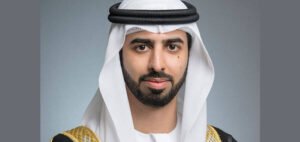The Middle East, a region with a complex history, has been shaped profoundly by its leaders over the centuries. From ancient empires to modern states, the role of leadership in this region has been pivotal in determining the course of its political, economic, and social developments. The impact of leaders in the Middle East is particularly significant due to the unique challenges the region faces, including ethnic and religious diversity, geopolitical tensions, and economic disparities. Leaders in the Middle East have navigated these challenges in various ways, influencing the region’s trajectory and shaping its current realities.
Historically, the Middle East has been home to some of the world’s earliest civilizations, where leadership played a crucial role in the formation and expansion of empires. Leaders like Hammurabi of Babylon and Cyrus the Great of Persia set precedents for governance that influenced not only their empires but also the broader region. Their leadership styles, characterized by a blend of autocracy and strategic diplomacy, laid the foundation for the political culture that would define the Middle East for centuries. These early leaders understood the importance of centralized power and control, often using religion and culture as tools to unify diverse populations under a single rule.
In the modern era, the Middle East has witnessed a different type of leadership, often defined by the challenges of colonialism, the struggle for independence, and the quest for national identity. The end of the Ottoman Empire and the subsequent division of its territories by European powers led to the emergence of new states, each with its own leadership dynamics. Leaders such as Mustafa Kemal Atatürk in Turkey, Gamal Abdel Nasser in Egypt, and King Abdulaziz Al Saud in Saudi Arabia played crucial roles in shaping their respective nations and, by extension, the broader Middle East. Atatürk’s secularism, Nasser’s pan-Arabism, and Abdulaziz’s consolidation of a kingdom based on Islamic principles are all examples of how leadership styles in the region have been deeply influenced by the challenges and opportunities presented by the modern world.
The part and decision-making of leaders in the Middle East has also been shaped by the region’s vast natural resources, particularly oil. The discovery of oil in the early 20th century transformed the economic landscape of the Middle East, bringing unprecedented wealth to countries like Saudi Arabia, Kuwait, and the United Arab Emirates. Leaders in these oil-rich nations have had to balance the management of immense wealth with the need to ensure sustainable development and social stability. The late Sheikh Zayed bin Sultan Al Nahyan, the founding father of the UAE, exemplifies this balance. He used the nation’s oil wealth to modernize the country, investing in infrastructure, education, and healthcare while maintaining the cultural and religious values that define the Emirati identity. Similarly, King Abdullah of Saudi Arabia implemented significant reforms in education and women’s rights, albeit within the constraints of a deeply conservative society.
However, the path of leaders in the Middle East is not without its challenges. The region has been plagued by conflicts, both internal and external, which have often been exacerbated by leadership struggles. The Arab-Israeli conflict, the Iran-Iraq War, the Syrian Civil War, and the ongoing instability in Yemen are all examples of how leadership decisions can have far-reaching consequences. In many cases, these conflicts have been fueled by a combination of authoritarian rule, sectarian tensions, and external interventions. Leaders in the Middle East have often had to navigate a delicate balance between maintaining power and addressing the needs and aspirations of their populations. The Arab Spring, which began in 2010, highlighted the tensions between autocratic leaders and their citizens, leading to widespread protests and, in some cases, regime changes. Leaders like Tunisia’s Zine El Abidine Ben Ali and Egypt’s Hosni Mubarak were ousted as a result of popular uprisings, demonstrating the limits of authoritarian leadership in the face of popular discontent.
In addition to managing conflicts, leaders in the Middle East have also had to contend with the challenges of economic diversification and modernization. As the world shifts towards renewable energy and away from fossil fuels, leaders in the oil-dependent economies of the Middle East are faced with the daunting task of transforming their economies. Visionary plans like Saudi Arabia’s Vision 2030, spearheaded by Crown Prince Mohammed bin Salman, aim to reduce the kingdom’s dependence on oil by investing in sectors like tourism, entertainment, and technology. Similarly, the UAE has positioned itself as a global hub for trade, finance, and innovation, thanks to the forward-thinking leadership of figures like Sheikh Mohammed bin Rashid Al Maktoum. These leaders recognize that the future of the Middle East depends on their ability to adapt to a rapidly changing global landscape, ensuring long-term economic sustainability and prosperity for their nations.
Moreover, the scope of the leaders in the Middle East extends beyond the borders of their own countries. The region’s geopolitical significance, due to its strategic location and natural resources, means that Middle Eastern leaders often play a crucial role in global politics. Leaders from the Middle East have been involved in key international negotiations, such as the Israeli-Palestinian peace process, the Iran nuclear deal, and the fight against terrorism. The decisions made by these leaders can have a profound impact not only on the region but also on the broader global community. The role of leaders in shaping the Middle East is thus a complex and multifaceted one, requiring a delicate balance between domestic governance, regional stability, and international diplomacy.
The business and governing leaders in the Middle East have played a critical role in shaping the region’s past, present, and future. From the ancient empires to the modern nation-states, leadership has been a driving force behind the region’s political, economic, and social developments. The challenges faced by Middle Eastern leaders are unique, requiring a combination of vision, pragmatism, and adaptability. As the region continues to evolve, the role of its leaders will remain central to determining the course of its future. Whether through managing conflicts, driving economic diversification, or engaging in global diplomacy, the leaders of the Middle East will continue to shape the destiny of this complex and dynamic region.





